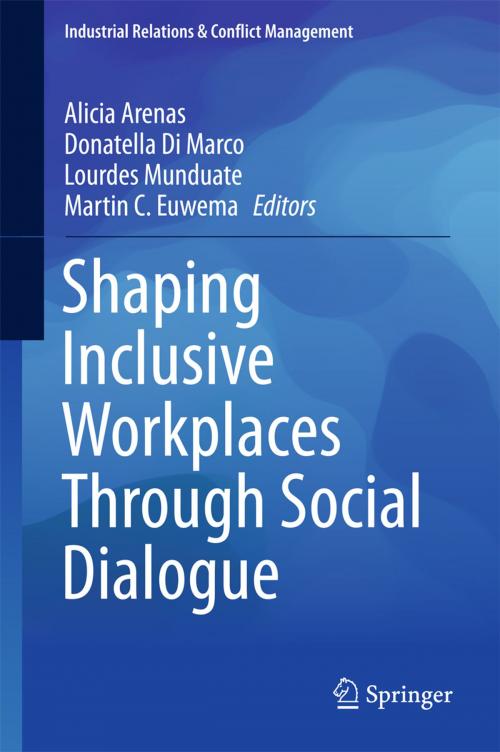Shaping Inclusive Workplaces Through Social Dialogue
Nonfiction, Health & Well Being, Psychology, Occupational & Industrial Psychology, Business & Finance, Human Resources & Personnel Management| Author: | ISBN: | 9783319663937 | |
| Publisher: | Springer International Publishing | Publication: | October 14, 2017 |
| Imprint: | Springer | Language: | English |
| Author: | |
| ISBN: | 9783319663937 |
| Publisher: | Springer International Publishing |
| Publication: | October 14, 2017 |
| Imprint: | Springer |
| Language: | English |
This book presents Social Dialogue as a social innovation strategy for managing diversity at any step of the human resource circle. It showcases empirical research on how to improve open dialogue and constructive negotiations between management, trade unions and employee representatives using multi-disciplinary perspectives from psychology, business, law, gender studies, sociology and management. This book delivers the latest research to promote a change of attitudes, behaviors and competences on diversity and social inclusion, and develop effective organizational responses in terms of policies and procedural aspects to improve inclusion of vulnerable groups at work.
The authors and editors explain effective development tools for an inclusive workplace through Social Dialogue, showing that it is possible to achieve this by integrating values, policies and practices at organizational level. The diversity of contributions from different organizational contexts, countries and cultures results in this being a valuable book for a wide range of scientists, researchers, students and human resource managers as they seek to shape inclusive workplaces through Social Dialogue.
This book presents Social Dialogue as a social innovation strategy for managing diversity at any step of the human resource circle. It showcases empirical research on how to improve open dialogue and constructive negotiations between management, trade unions and employee representatives using multi-disciplinary perspectives from psychology, business, law, gender studies, sociology and management. This book delivers the latest research to promote a change of attitudes, behaviors and competences on diversity and social inclusion, and develop effective organizational responses in terms of policies and procedural aspects to improve inclusion of vulnerable groups at work.
The authors and editors explain effective development tools for an inclusive workplace through Social Dialogue, showing that it is possible to achieve this by integrating values, policies and practices at organizational level. The diversity of contributions from different organizational contexts, countries and cultures results in this being a valuable book for a wide range of scientists, researchers, students and human resource managers as they seek to shape inclusive workplaces through Social Dialogue.















